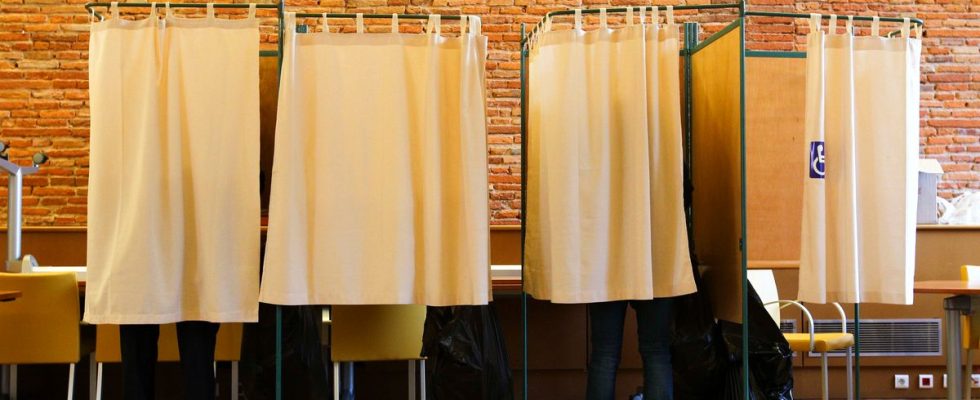“On foot or by tram, it will be a hassle to go and vote! “. Chantal Beer-Demander, president of defense committee of the Fontaine-Lestang/Arènes district in Toulouse, don’t lose your temper. Not because she already has the lead in the European elections on June 9, far from exciting the crowds, but because like the other inhabitants of her sector, she learned by mail that her polling station was going to move.
No more fulfilling civic duty in the classrooms of the nearby Billières school. To slip their ballot into the ballot box, in June as for other elections, some residents of the neighborhood will have to migrate to the Pierre-Montané sports complex, located near the Zénith. Chantal Beer-Demander has calculated that the travel time, whether you walk or wait for a Sunday train, “will be at least multiplied by five” for her and her neighbors. “We are going to have to vote outside our neighborhood and even outside our constituency,” she notes.
“Polling places” goes from 68 to 52
So why this change, proposed by the Capitol and endorsed by a prefectural decree of August 31 ? The decision does not close any of the 265 polling stations in the Pink City, but it “groups” them into large “more accessible” rooms to the detriment of small schools, reducing the number of “voting places” from 68 to 54. Removals perfectly handled by the town hall, for logistical reasons “increasingly complicated to manage”. “Schools pose a lot of difficulties because they operate until Friday and then Monday morning. So for each round of voting, you have to bring all the equipment, install it, then repack it and put the classrooms back in place,” lists Sacha Briand, both deputy for Finance and Elections. Not to mention, he adds, “the problems of cohabitation”, with sometimes “thefts when everyone is wandering around” or very practical questions like “sanitary facilities designed for toddlers” and not necessarily for the voter. lambda.
The elected official also takes as an argument the crisis of vocation of assessors, always more difficult to find during the ballot and who will be better disposed if at the last minute they have to officiate in the next room rather than being obliged to change position. place. An information campaign must also target voters affected by these moves in early 2024.
Chantal Beer-Demander brushes aside the logistical and economic argument. “Democracy has a cost,” she gets angry. And, if we no longer have to vote in schools, we have a very good neighborhood hall.” “Obviously, people will find themselves further away from their polling station, but others will also be closer, and these people will not demonstrate,” retorts Sacha Briand. The right to vote can also mean the requirement to travel three minutes more, it is not inaccessible.”
The opposition cries of political calculation
The association manager assures that “people are furious” and that other of her “counterparts” are studying the new map of polling stations. She wants to have a “more detailed reading” to know if political intentions should also be detected. A step that François Piquemal, LFI deputy of the constituency crosses happily. “The prefecture and the mayor of Toulouse have decided to remove no less than 14 polling places, some of which where Jean-Luc Mélenchon and Nupes scored very well! he wrote in a leaflet. Result: polling places further from your home and general confusion about where you should go to vote.”
Maxime Le Texier, elected from the opposition group AMC (citizen municipalist alternative) does not believe in the cost reduction argument either. He sees in this redistricting, “an absolute cynicism which will accentuate abstentionism [47,71 % aux Européennes de 2019 à Toulouse], one of the worst evils of our society.” Surprising that the decision was not debated in the municipal council, he analyzes that these changes may discourage left-wing voters more than those of Mayor Jean-Luc Moudenc (center) “traditionally motivated and loyal for a long time”. “The abstainers, I don’t think it’s the distance that poses a difficulty for them,” answers Sacha Briand. It’s up to the candidates and political parties to make them want to make this trip.” Looking forward to the spring 2026 municipal elections.

